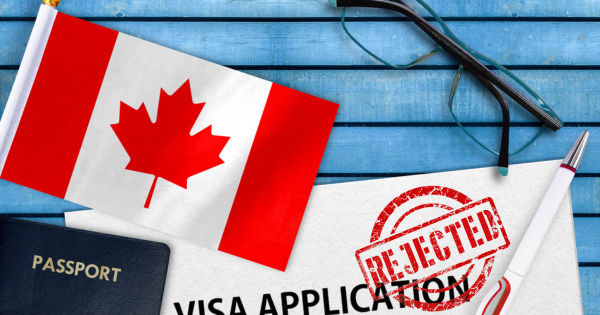1. Insufficient Proof of Ties to Your Home Country
Visa officers want to be sure that you intend to return home after your stay in Canada. If they are not convinced, your application may be refused.
How to Strengthen Your Application:
- Submit proof of employment, such as a letter from your employer confirming your leave and expected return.
- Provide property documents, business ownership records, or family ties that show strong reasons for returning home.
- If you are a student, include enrollment documents and a letter from your school confirming your academic status.
2. Lack of Adequate Financial Proof
You must prove that you have enough money to support yourself and any dependents while in Canada. If your financial documents don’t demonstrate this, your application may be denied.
How to Strengthen Your Application:
- Provide bank statements showing a stable and sufficient balance for at least the last 4-6 months.
- If someone is sponsoring you, include a notarized letter of financial support along with their financial records.
- Ensure all financial documents are clear, official, and verifiable.
3. Unclear Purpose of Visit
Your reason for traveling to Canada must be clear and well-documented. A vague or inconsistent purpose can lead to refusal.
How to Strengthen Your Application:
- Submit a well-structured itinerary outlining your travel dates, activities, and accommodations.
- If visiting family, include an invitation letter detailing your host’s status in Canada and their willingness to accommodate you.
- Study permit applicants should write a clear Statement of Purpose (SOP) explaining how their chosen program aligns with their career goals.
4. Incomplete Documents
Failure to provide all required documents can result in immediate refusal.
How to Strengthen Your Application:
- Carefully review the official IRCC checklist for your visa type.
- Ensure documents are complete, properly formatted, and translated into English or French if necessary.
- Include any additional supporting documents that reinforce your case.
5. Misrepresentation or Inconsistent Information
Providing false or misleading details, even unintentionally, can lead to a refusal or even a five-year ban from applying for a Canadian visa.
How to Strengthen Your Application:
- Double-check that all information is accurate and consistent across documents.
- If you made an error in a previous application, explain it in a cover letter and provide supporting documents.
- Never submit fake or altered documents.
6. Criminal Inadmissibility
Having a criminal record, even for minor offenses, can make you ineligible for a Canadian visa.
How to Strengthen Your Application:
- If applicable, apply for criminal rehabilitation before submitting your visa application.
- For minor offenses, consider applying for a Temporary Resident Permit (TRP) if you have a valid reason to visit Canada.
7. What to Do If Your Visa Is Refused?
If your application gets denied, don’t lose hope. You have options:
- Request GCMS Notes – This document provides a detailed explanation of why your visa was refused.
- Review the Refusal Letter – Carefully go through the officer’s concerns and determine what needs improvement.
- Improve Your Application – Address the reasons for refusal by strengthening your documents.
- Consider Reapplying or Appealing – Depending on the reason, you can submit a stronger reapplication or seek legal advice for an appeal.
A visa refusal does not mean the end of your plans to visit or move to Canada. By understanding common pitfalls and preparing a thorough application, you can improve your chances of approval. Always refer to the official IRCC website for the most accurate and updated visa guidelines.
For more information, visit the official IRCC website for details on visa applications and refusal reasons.
Need expert guidance on your visa application? JCA LAW is here to help!
Contact us for a consultation
Visit our website to learn more
Email us at [email protected] for more details


